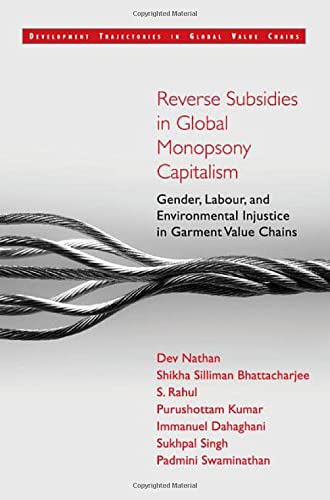
Reverse Subsidies in Global Monopsony Capitalism: Gender, Labour, and Environmental Injustice in Garment Value Chains PDF
313 Pages·2022·12.4112 MB·other
Most books are stored in the elastic cloud where traffic is expensive. For this reason, we have a limit on daily download.
Preview Reverse Subsidies in Global Monopsony Capitalism: Gender, Labour, and Environmental Injustice in Garment Value Chains
Description:
This book provides a firm analytical base to discussions about injustice and the unequal distribution of gains from global production in the form of global monopsony capitalism. It utilizes the concept of reverse subsidies as the purchase of gendered labour and environmental services below their costs of production in garment value chains in India and other garment producing countries, such as Bangladesh and Cambodia. Environmental services, such as freshwater for garment manufacture and land for cotton production, are degraded by overuse and untreated waste disposal. The resulting higher profits from the low prices of garments are captured by global brands, using their monopsony position, with few buyers and myriad sellers, in the market. This book links the concept of reverse subsidies with those of injustice, inequality and sustainability in global production.
See more
The list of books you might like
Most books are stored in the elastic cloud where traffic is expensive. For this reason, we have a limit on daily download.
